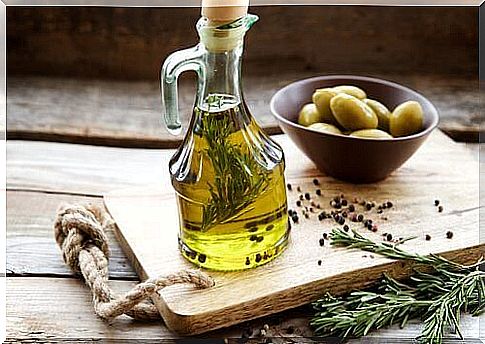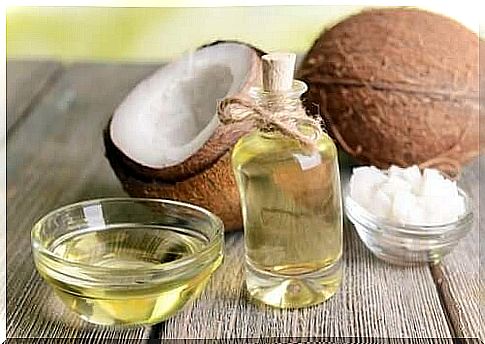Which Vegetable Oils Are Good For Health?

There are very many qualities of vegetable oils today. Some of them are obtained from seeds and others from cereals or fruits. Now we want to know which vegetable oils are the best for health, for what purpose can they be used and do they all bring us the same health benefits?
The truth is quite simple; not all oils are equal and not all oils bring us the same health benefits. In fact, each vegetable oil has different properties depending on its origin and also on the way it is prepared, and therefore each oil also has a specific value and use.
Since we often use vegetable oils to make different foods, it would be quite interesting to know a little more about what kind of vegetable oils exist, which vegetable oils are the best options for health, and how they differ from each other.
Vegetable oils with nutritional properties
Oils are basically fat, so they do not contain large amounts of proteins, carbohydrates, vitamins or microminerals. However, they promote the absorption of fat-soluble vitamins such as vitamins A, D, E and K.
In general, fats in oils in liquid form at room temperature are healthy and provide energy for metabolism. Indeed, one of the biggest beneficiaries of these fats is one of the most important and valuable organs in our body, the brain. As many will surely know, this is a very fatty organ that uses fats both to maintain its functions and to communicate between nerve cells.
Without fat, the brain would be like “dumb”. However, despite being a very fatty organ, the brain itself is not able to produce much of the fat it needs to function, in other words, we need to get these fats specifically through diet. In addition to the proper functioning of the brain, vegetable oils are recommended, among other things, to ensure cardiovascular balance and maintain healthy skin.
The recommended vegetable oils are those that contain the most of the essential fats that the body needs to maintain its functions. When we take into account the specific composition of each vegetable oil, their production methods and utilization in different recipes also vary.
Let’s look at a few examples of vegetable oils below.
Nut and almond oils
Nut and almond oils, as well as oils made from some seeds, such as vegetable oils made from pumpkin seeds or grape seeds, are high in unsaturated fats. In fact, these vegetable oils are the oils that contain the largest amount of polyunsaturated fats that are important to the body.
Due to their high content of unsaturated fatty acids, they are also more sensitive to decomposition and can oxidize other oils more easily. Therefore, these oils must not be overheated, as they can release toxic substances at too high temperatures.
Vegetable oils made from nuts, seeds and almonds are ideal choices for marinades and dishes served cold. Because of their very low melting point, they do not usually solidify in the cold. This is why they are optimal choices for storing food in the refrigerator without the oil it freezes in the cold.
Olive oil
Olive oil is often referred to as the liquid gold of the Mediterranean diet, as it is rich in unsaturated fatty acids, vitamin E and other natural antioxidants, which together form compounds that are almost essential for the body to function.
Natural antioxidants help alleviate the effects of oxidative stress (a condition in which the ratio of antioxidants to free radicals in the body is out of balance) that toxic wastes can produce during cell function. In addition, olive oil is known to “cleanse” the blood.

Olive oil does not tolerate high temperatures, so its taste and texture may deteriorate if it overheats. Therefore, special care must be taken when using olive oil during frying so that it does not lose its valuable properties.
Rapeseed oil
Rapeseed oil is rich in healthy unsaturated fats. In addition, it is thought to be able to help reduce the amount of so-called “bad” cholesterol, or LDL cholesterol, by up to 17%, so it can be considered a regular part of a healthy diet.
Like nut, almond and olive oils, this oil does not have a high melting point, so it is not recommended for use in deep frying or other cooking that requires the oil to be heated to high temperatures. Namely, heating rapeseed oil at very high temperatures can cause chemical reactions that break down the structure of the oil and, in the worst case, release toxic substances.
Coconut oil
Unlike the other vegetable fats mentioned above, coconut oil, despite its vegetable origin, is rich in saturated fats, i.e. its use has both advantages and disadvantages. We also know that precisely because of its high saturated fat content, coconut oil can raise the level of bad cholesterol compared to, for example, olive oil.
On the other hand, this oil is considered, for example, as a healthier alternative to butter (butter has a very high content of saturated fats) in cases where cholesterol levels need to be regulated. However, experts in the field and nutrition legislation generally recommend that the use of coconut oil should not be exaggerated.
In addition to saturated fats, coconut oil also has excellent health properties. It is recommended for topical use on the skin, among other things, as it moisturizes the skin and maintains its natural balance. In addition, it would appear that moderate consumption of coconut oil is also good for the brain.

Fat content of each vegetable oil
As we can see from the table below, all vegetable oils contain the same amount of calories and have the same fat content. However, the composition of each type of fat (both saturated and unsaturated) is different.
From the following table, we can look at the differences between different vegetable oils. The amounts used in the table correspond to one tablespoon of each vegetable oil. (Source: The United States Department of Agriculture USDA).
| Olive oil | Rapeseed oil | Nut and almond oils | Coconut oil | |
| Kilocalories | 120 | 120 | 120 | 120 |
| Total fats | 14 g | 14 g | 14 g | 14 g |
| Saturated fats | 2 g | 1 g | 2 g | 13 g |
| Monounsaturated fatty acids | 10 g | 8 g | 3 g | 1 g |
| Polyunsaturated fatty acids | 1.5 g | 4 g | 8 g | 0 g |
Not all vegetable oils are suitable for use in cooking
Because there are differences in the levels of saturated and unsaturated fats, each vegetable oil is differently suitable for cooking and baking. It is therefore advisable to avoid using the same oil to make any recipe. Indeed, the most ideal way to utilize vegetable oils would be to use each oil according to its properties and its ability to withstand high temperatures, as we mentioned earlier.
So which vegetable oils are most beneficial to health? In terms of both healthiness and versatility, olive oil is probably the best choice of these vegetable oils. It can be used for cooking, cold sauces, salad dressings, mayonnaise and hot sauces. In addition to all this, however, it is not recommended for the preparation of deep-fried foods because it does not tolerate very high temperatures properly.
On the other hand, e.g. rapeseed oil can be recommended especially for the preparation of foods that do not involve exposing the oil to high temperatures because, as already discussed above, overheating of vegetable oils can change their properties and structure.
Finally, it should be added that where nut, almond, rapeseed and olive oils are great for salty foods, in baking the taste and texture of coconut oil reach their best dimensions.
When cooking, keep in mind which vegetable oils are best suited for any purpose!









